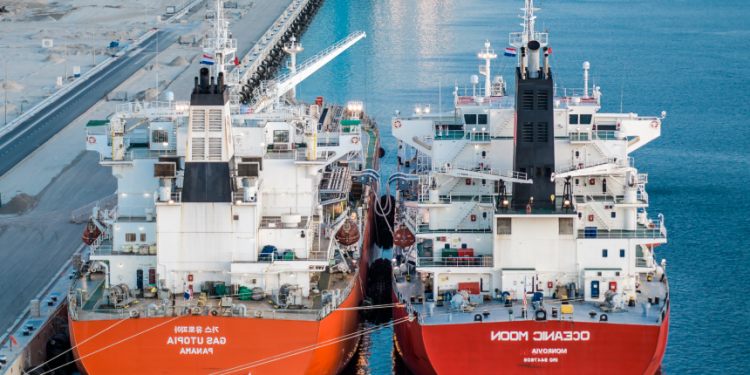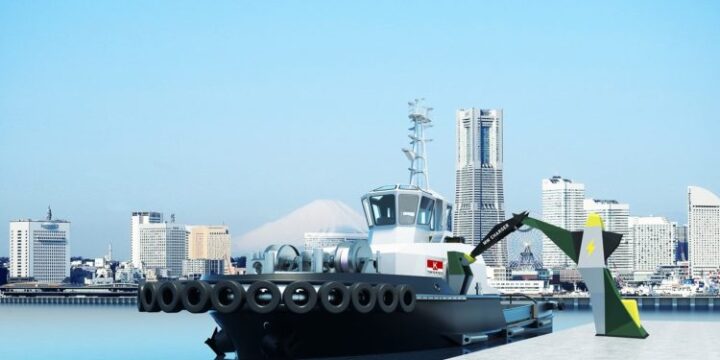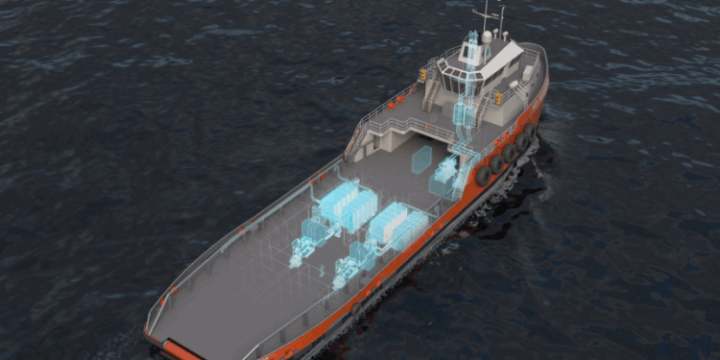August 19, 2025

Both ammonia and methanol have moved from theory to reality as zero-emission shipping fuels, according to a new report from the Global Maritime Forum’s Getting to Zero Coalition.
Based on interviews with around 40 influential industry organisations, the “From pilots to practice: Methanol and ammonia as shipping fuels” report, reveals that both fuels are now ‘ready’ – methanol for low-carbon operation and ammonia for piloting – representing a significant increase in maturity since the report’s first edition in 2020.
Methanol
According to the report, methanol is rapidly moving from proof of concept to early scale (more than 60 methanol-capable vessels in operation, 300 more on order, and bunkering available at around 20 ports) and early adopters are finding it relatively safe and straightforward to integrate.
Furthermore, its lower energy density presents operational trade-offs but has not proven a barrier, and new retrofit kits and the relative ease of converting tanks are making retrofitting conventional vessels feasible.
The key challenge to broader scale-up is the availability of green methanol, which makes up only a small share of total supply and remains challenging for shipping companies to access.
Ammonia
Ammonia is rapidly approaching proof of concept as a marine fuel, with engine tests suggesting it can cut tank-to-wake emissions by up to 95%. The first ammonia-powered vessels have been successfully piloted, engine testing is near completion, and bunkering trials are underway – none of which have revealed any fundamental barriers to adoption.
Operators report confidence in safely operating ammonia-powered vessels and will likely phase the fuel in over time to build operational experience.
The findings of the report highlight that both fuels are now ready, however it is clear that both fuels require a concerted push if they are to be able to rapidly scale from around 2030 in line with the industry’s decarbonisation targets.
We have seen excellent progress in the development of zero-emission fuels and technologies over recent years, with methanol and ammonia having now shifted from potential solutions towards initial scale and proof of concept. However, we are only at the start of our journey and technology readiness is not enough by itself.
…said Jesse Fahnestock, Director of decarbonisation, Global Maritime Forum.
Fahnestock also highlighted that in order to scale zero-emission fuels at the pace required, action is needed from the International Maritime Organization, national policymakers and the industry to create the right enabling conditions as this will be just as vital as the development of the technology itself.
The key area that must be addressed is the fuel supply chain. Early movers have proposed a mix of actions to accelerate the development of the fuel supply chain:
- Provide policy incentives to reduce the cost gap facing the fuels, particularly their e-fuel variants, and support early movers.
- Establish robust, harmonised fuel certification to enable investment in fuel production and validate the fuels’ greenhouse gas reductions.
- Use book-and-claim systems to channel global demand for zero-emission shipping while making zero-emission fuel physically available on the most feasible routes.
- Operationalise fuel demand aggregation to provide the level of utilisation needed to justify investments in bunkering infrastructure.
- Offer CAPEX grants for bunkering infrastructure to lower the threshold for investment, particularly in bunker vessels.
- Pursue deeper collaboration between ports, terminals, and early movers through green corridor initiatives, route-based feasibility studies, and/or collaborative bunkering demonstrations, to smooth the introduction of bunkering at relevant ports.
Furthermore, to keep technology and design developments on track, while ensuring safety and climate benefits, they suggest the following additional actions:
- Close gaps in the availability of methanol and ammonia engine sizes and types, particularly auxiliary engines and spare parts, while implementing learnings from methanol and ammonia-powered ships on the water to optimise technologies and reduce costs.
- Ensure IMO’s life cycle emissions guidelines are robust with respect to the sustainability of biomass feedstocks and fugitive emissions/slip, including nitrous oxide emissions.
- Undertake independent studies to measure the real-world emissions from the first wave of commercial ammonia-powered vessels.
- Enhance knowledge sharing by, for example, shipyards bringing together shipowners in collaborative risk assessments and marine insurers positioning themselves as knowledge hubs for methanol and ammonia safety.

